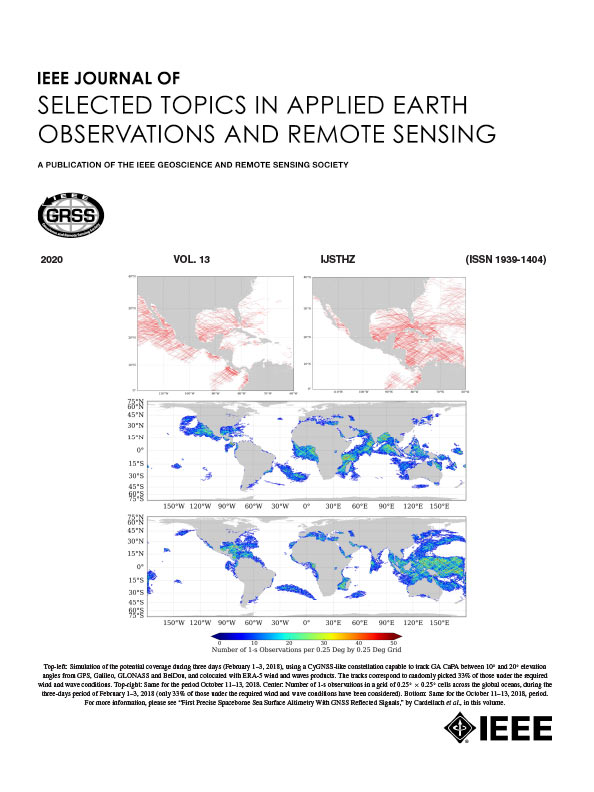A Global Extended MODIS-Compatible NDVI Dataset
IF 4.7
2区 地球科学
Q1 ENGINEERING, ELECTRICAL & ELECTRONIC
IEEE Journal of Selected Topics in Applied Earth Observations and Remote Sensing
Pub Date : 2025-03-11
DOI:10.1109/JSTARS.2025.3550416
引用次数: 0
Abstract
The study of climate change impacts on vegetation requires access to long-time series vegetation dynamics. MODIS NDVI, with its high chlorophyll sensitivity and data quality, is an important data source in global change monitoring and ecological studies. However, as MODIS NDVI became available only after 2000, the data before 2000 are lacking. This article provides a global MODIS-compatible NDVI dataset at moderate spatial (0.05°) and temporal (16-day) resolution from 1982 to 2000. This dataset generates a long-time series of global NDVI products based on MODIS and AVHRR data using multiple optimization machine learning algorithms. It is designed to synchronously capture complex spatial and temporal correlations of multisource data and account for heterogeneity. Compared with MODIS NDVI, R2 of this dataset ranged from 0.79 to 0.95, and the mean absolute error was less than 0.06 in most areas. This dataset addresses the problem of the short period of MODIS NDVI data and provides a new data choice for monitoring global vegetation dynamics and ecological studies.一个全球扩展的modis -兼容NDVI数据集
研究气候变化对植被的影响需要获得长时间序列的植被动态。MODIS NDVI具有较高的叶绿素灵敏度和数据质量,是全球变化监测和生态研究的重要数据源。但是,由于MODIS NDVI是在2000年以后才获得的,因此缺乏2000年以前的数据。本文提供了1982 - 2000年全球modis -兼容的中等空间(0.05°)和时间(16天)分辨率NDVI数据集。该数据集基于MODIS和AVHRR数据,使用多种优化机器学习算法生成了一系列长期的全球NDVI产品。它旨在同步捕获多源数据的复杂空间和时间相关性,并考虑异质性。与MODIS NDVI相比,该数据集的R2在0.79 ~ 0.95之间,大部分地区的平均绝对误差小于0.06。该数据集解决了MODIS NDVI数据周期短的问题,为全球植被动态监测和生态研究提供了新的数据选择。
本文章由计算机程序翻译,如有差异,请以英文原文为准。
求助全文
约1分钟内获得全文
求助全文
来源期刊
CiteScore
9.30
自引率
10.90%
发文量
563
审稿时长
4.7 months
期刊介绍:
The IEEE Journal of Selected Topics in Applied Earth Observations and Remote Sensing addresses the growing field of applications in Earth observations and remote sensing, and also provides a venue for the rapidly expanding special issues that are being sponsored by the IEEE Geosciences and Remote Sensing Society. The journal draws upon the experience of the highly successful “IEEE Transactions on Geoscience and Remote Sensing” and provide a complementary medium for the wide range of topics in applied earth observations. The ‘Applications’ areas encompasses the societal benefit areas of the Global Earth Observations Systems of Systems (GEOSS) program. Through deliberations over two years, ministers from 50 countries agreed to identify nine areas where Earth observation could positively impact the quality of life and health of their respective countries. Some of these are areas not traditionally addressed in the IEEE context. These include biodiversity, health and climate. Yet it is the skill sets of IEEE members, in areas such as observations, communications, computers, signal processing, standards and ocean engineering, that form the technical underpinnings of GEOSS. Thus, the Journal attracts a broad range of interests that serves both present members in new ways and expands the IEEE visibility into new areas.

 求助内容:
求助内容: 应助结果提醒方式:
应助结果提醒方式:


